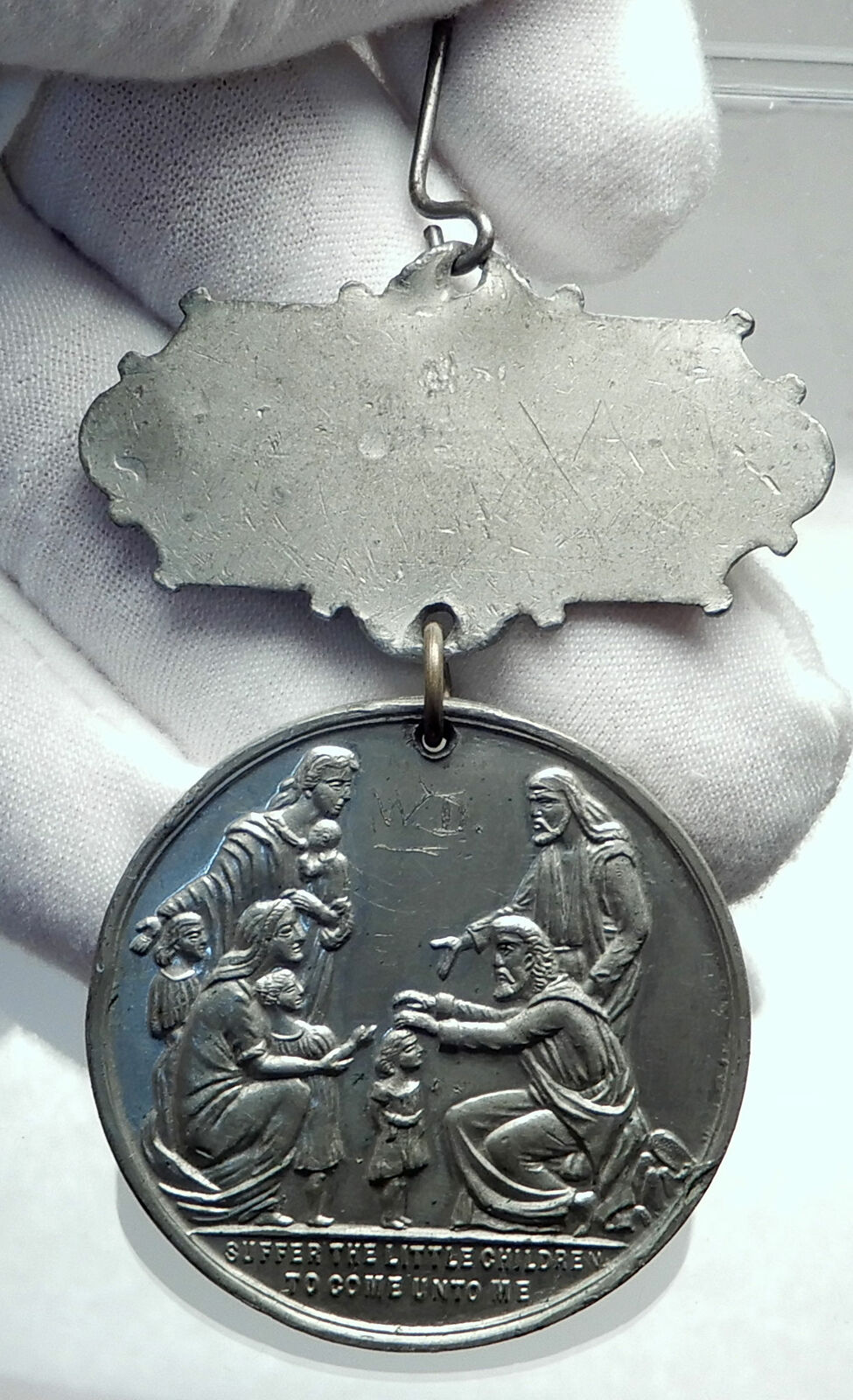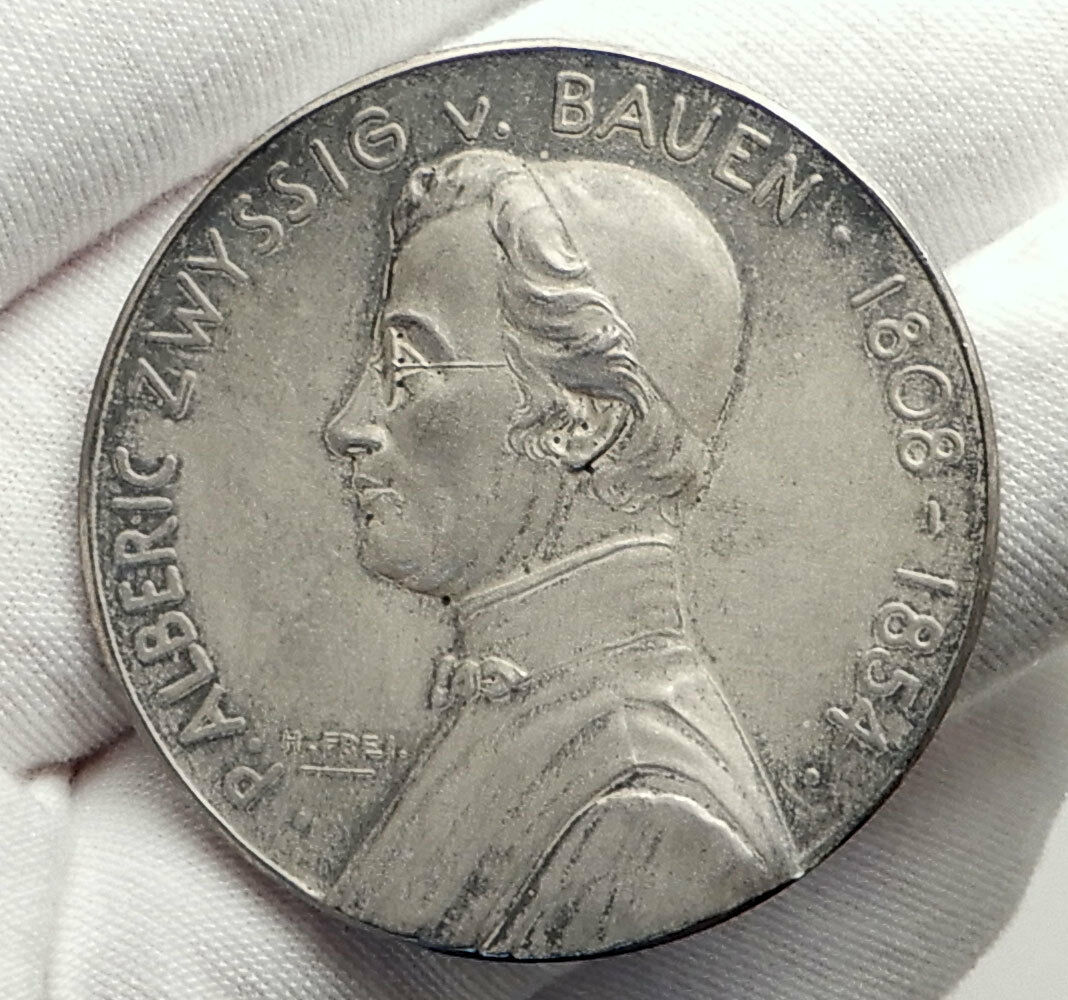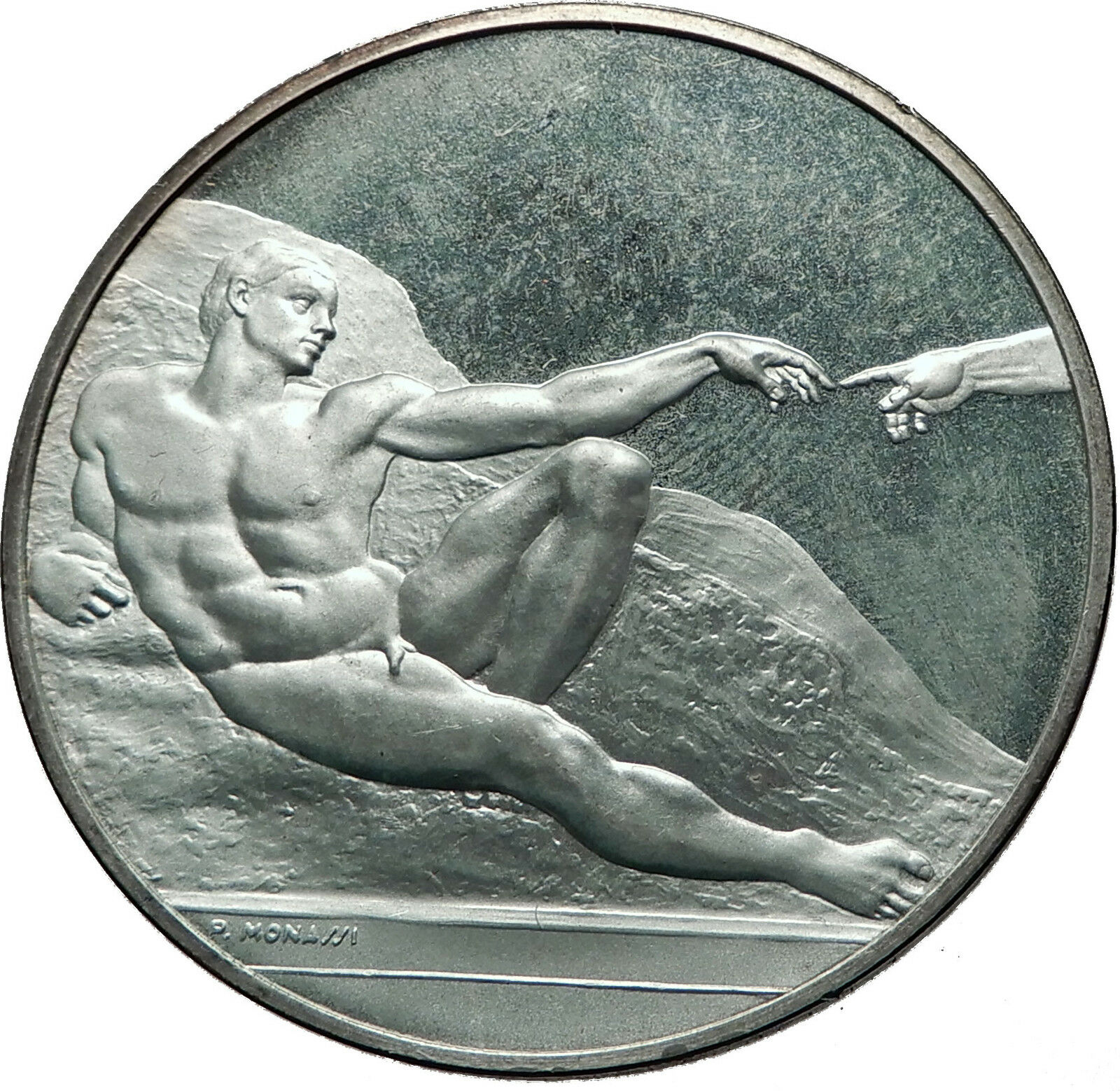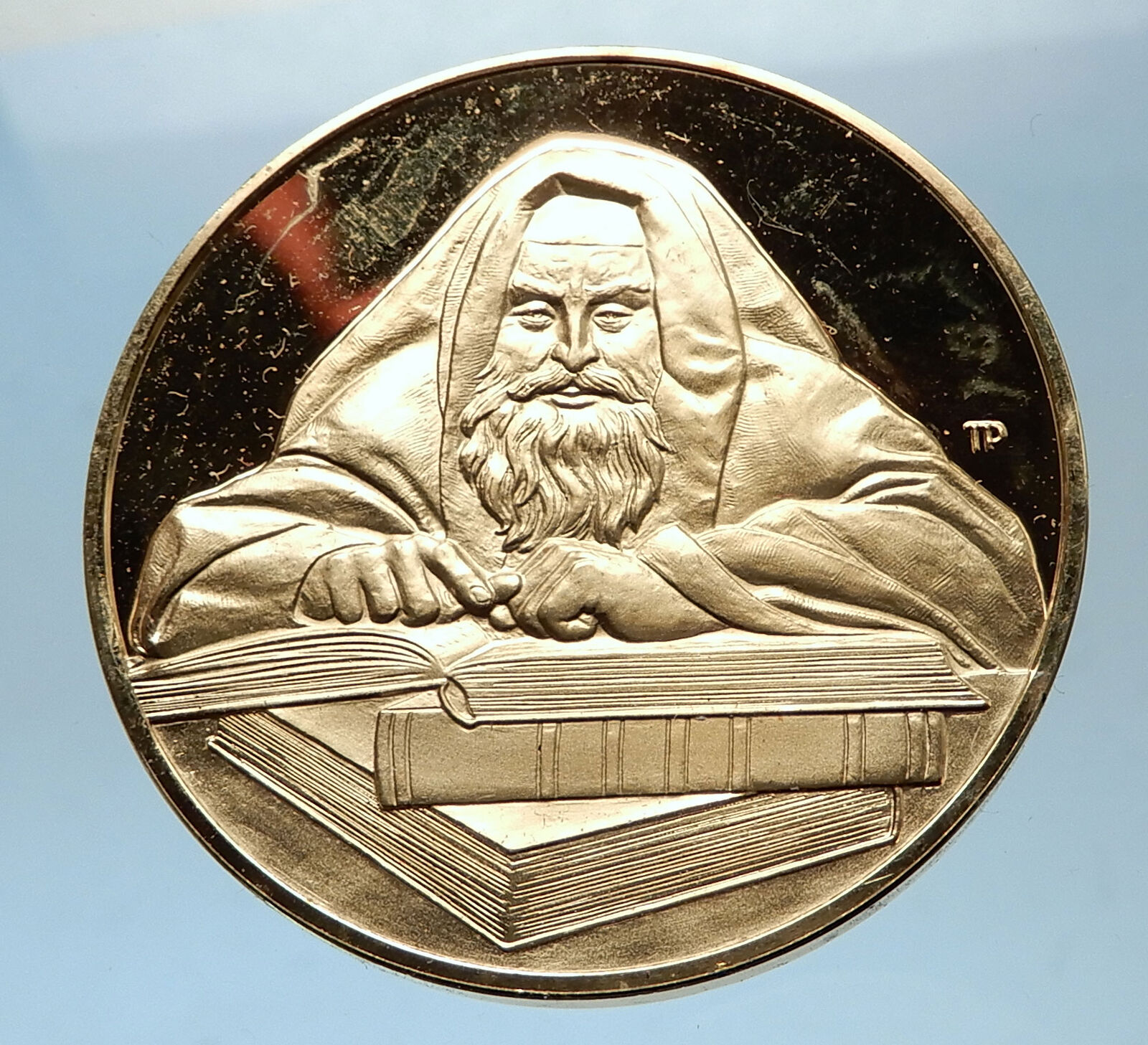|
Japan
Japanese Invasion of China – Manchuria Commemorative Chinese Medal
1930’s Bronze Medal 55mm x 39mm (20.22 grams)
Oval design: Sun within circle, bamboo, flora below.
Asian inscription.
You are bidding on the exact item pictured, provided with a Certificate of Authenticity and Lifetime Guarantee of Authenticity.
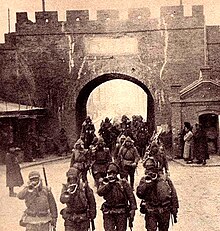 The Japanese invasion of Manchuria began on 18 September 1931, when the Kwantung Army of the Empire of Japan invaded Manchuria immediately following the Mukden Incident. After the war, the Japanese established the puppet state of Manchukuo. Their occupation lasted until the Soviet Union and Mongolia launched the Manchurian Strategic Offensive Operation in 1945. The Japanese invasion of Manchuria began on 18 September 1931, when the Kwantung Army of the Empire of Japan invaded Manchuria immediately following the Mukden Incident. After the war, the Japanese established the puppet state of Manchukuo. Their occupation lasted until the Soviet Union and Mongolia launched the Manchurian Strategic Offensive Operation in 1945.
The South Manchuria Railway Zone and the Korean Peninsula were already under the control of the Japanese Empire since the Russo-Japanese War of 1904. Japan’s ongoing industrialization and militarization ensured their growing dependence on oil and metal imports from the US. The US sanctions which prevented trade with the United States (which had occupied the Philippines around the same time) resulted in Japan furthering their expansion in the territory of China and Southeast Asia. The invasion is sometimes cited as an alternative starting date for World War II, in contrast with the more commonly accepted one of September 1939.
With the invasion having attracted great international attention, the League of Nations produced the Lytton Commission (headed by British politician Victor Bulwer-Lytton) to evaluate the situation, with the organization delivering its findings in October 1932. The label of the invasion as ethically illegitimate prompted the Japanese government to withdraw from the League entirely.
.svg/220px-Japan_(orthographic_projection).svg.png)  Japan is an island nation in East Asia. Located in the Pacific Ocean, it lies to the east of the Sea of Japan, China, North Korea, South Korea and Russia, stretching from the Sea of Okhotsk in the north to the East China Sea and Taiwan in the south. The characters that make up Japan’s name mean “sun-origin”, which is why Japan is often referred to as the “Land of the Rising Sun”. Japan is an island nation in East Asia. Located in the Pacific Ocean, it lies to the east of the Sea of Japan, China, North Korea, South Korea and Russia, stretching from the Sea of Okhotsk in the north to the East China Sea and Taiwan in the south. The characters that make up Japan’s name mean “sun-origin”, which is why Japan is often referred to as the “Land of the Rising Sun”.
Japan is a stratovolcanic archipelago of 6,852 islands. The four largest islands are Honshu, Hokkaido, Kyushu, and Shikoku, which together comprise about ninety-seven percent of Japan’s land area. Japan has the world’s tenth-largest population, with over 126 million people. Honshū’s Greater Tokyo Area, which includes the de facto capital of Tokyo and several surrounding prefectures, is the largest metropolitan area in the world, with over 30 million residents.
Archaeological research indicates that people lived in Japan as early as the Upper Paleolithic period. The first written mention of Japan is in Chinese history texts from the 1st century AD. Influence from other regions, mainly China, followed by periods of isolation, particularly from Western European influence, has characterized Japan’s history. From the 12th century until 1868, Japan was ruled by successive feudal military shoguns in the name of the Emperor. Japan entered into a long period of isolation in the early 17th century, which was only ended in 1853 when a United States fleet pressured Japan to open to the West. Nearly two decades of internal conflict and insurrection followed before the Meiji Emperor was restored as head of state in 1868 and the Empire of Japan was proclaimed, with the Emperor as a divine symbol of the nation. In the late 19th and early 20th centuries, victories in the First Sino-Japanese War, the Russo-Japanese War and World War I allowed Japan to expand its empire during a period of increasing militarism. The Second Sino-Japanese War of 1937 expanded into part of World War II in 1941, which came to an end in 1945 following the atomic bombings of Hiroshima and Nagasaki. Since adopting its revised constitution in 1947, Japan has maintained a unitary constitutional monarchy with an emperor and an elected legislature called the Diet.
A major economic power, Japan is a developed country and has the world’s third-largest economy by nominal GDP and the world’s fourth-largest economy by purchasing power parity. It is also the world’s fourth-largest exporter and fourth-largest importer. Although Japan has officially renounced its right to declare war, it maintains a modern military with the world’s eighth largest military budget, used for self-defense and peacekeeping roles. Japan ranks high in metrics of prosperity such as the Human Development Index, with the Japanese population enjoying the highest life expectancy of any country in the world and the infant mortality rate being the third lowest globally.
|





 The Japanese invasion of Manchuria began on 18 September 1931, when the Kwantung Army of the Empire of Japan invaded Manchuria immediately following the Mukden Incident. After the war, the Japanese established the puppet state of Manchukuo. Their occupation lasted until the Soviet Union and Mongolia launched the Manchurian Strategic Offensive Operation in 1945.
The Japanese invasion of Manchuria began on 18 September 1931, when the Kwantung Army of the Empire of Japan invaded Manchuria immediately following the Mukden Incident. After the war, the Japanese established the puppet state of Manchukuo. Their occupation lasted until the Soviet Union and Mongolia launched the Manchurian Strategic Offensive Operation in 1945. .svg/220px-Japan_(orthographic_projection).svg.png)
 Japan is an island nation in East Asia. Located in the Pacific Ocean, it lies to the east of the Sea of Japan, China, North Korea, South Korea and Russia, stretching from the Sea of Okhotsk in the north to the East China Sea and Taiwan in the south. The characters that make up Japan’s name mean “sun-origin”, which is why Japan is often referred to as the “Land of the Rising Sun”.
Japan is an island nation in East Asia. Located in the Pacific Ocean, it lies to the east of the Sea of Japan, China, North Korea, South Korea and Russia, stretching from the Sea of Okhotsk in the north to the East China Sea and Taiwan in the south. The characters that make up Japan’s name mean “sun-origin”, which is why Japan is often referred to as the “Land of the Rising Sun”.

